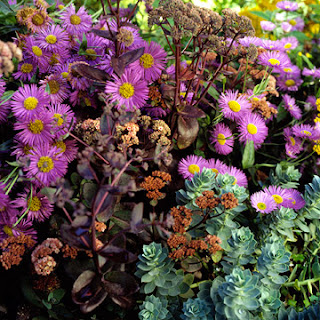Spring is here! Spring is here! It’s the best time of the year! Those of us who love digging in the dirt have been waiting anxiously for planting time. We’ve dreamed of warmer days for months.
We’ve poured over seed catalogs, visited our favorite websites and sketched up our gardens and flower beds and got out our tools. Some of us who got warm weather last week have even bought some plants in preparation for our gardening season.
 |
| Courtesy: USDA
2012 USDA Plant Hardiness Zone Map is the
standard by which gardeners and growers can determine which plants are most
likely to thrive at a location. The map is based on the average annual minimum
winter temperature, divided into 10-degree F zones.
It's easy to check your zone: go HERE, type in your zip code and/or state to see your personalized map. This site puts my hardiness zone as a 7 as seen on the above map. |
This site puts me in a
zone 6.
What does this mean to
me? I’m going to follow both guidelines and ask lots of questions at my local
nursery if I fall in love with a plant I have not personally worked with
before.
What plants are you looking
forward to growing this year? My yen this year is Hollyhocks, Sunflowers. My
new addition, which according to my ever helpful Better Homes and Gardens
regional planting guide says will grow splendidly here, is
 |
| Courtesy: B.H.G.com |
Fleabane Description and growing Information:
This tall wildflower
produces tiny, daisy-like flowers in great clouds in late summer into early
fall. It is often mistaken for an aster, but is easier to grow and isn't
plagued by fungal problems. Plants start blooming in midsummer and often
continue blooming until fall. The native forms are seldom grown in the garden
because they can be weedy, though they're great for naturalized areas and
prairie or meadow plantings. However, many well-behaved, beautiful hybrids are
available. All are beautiful when cut in big sprays and arranged in a vase.
Light:
Sun
Zones:
3-9
Plant Type:
Perennial
Plant Height:
18-30
inches tall
Plant Width:
18-24
inches wide
Landscape Uses:
Containers,Beds
& Borders
Special Features:
Flowers,
Cut Flowers, Attracts Butterflies, Drought Tolerant, Easy to Grow.
Isn't Fleabane pretty? If you have had experience with this plant, please let me know in the comments and happy spring!
Isn't Fleabane pretty? If you have had experience with this plant, please let me know in the comments and happy spring!









